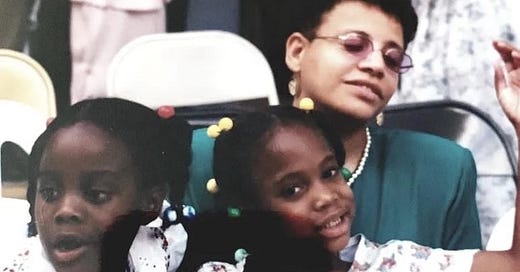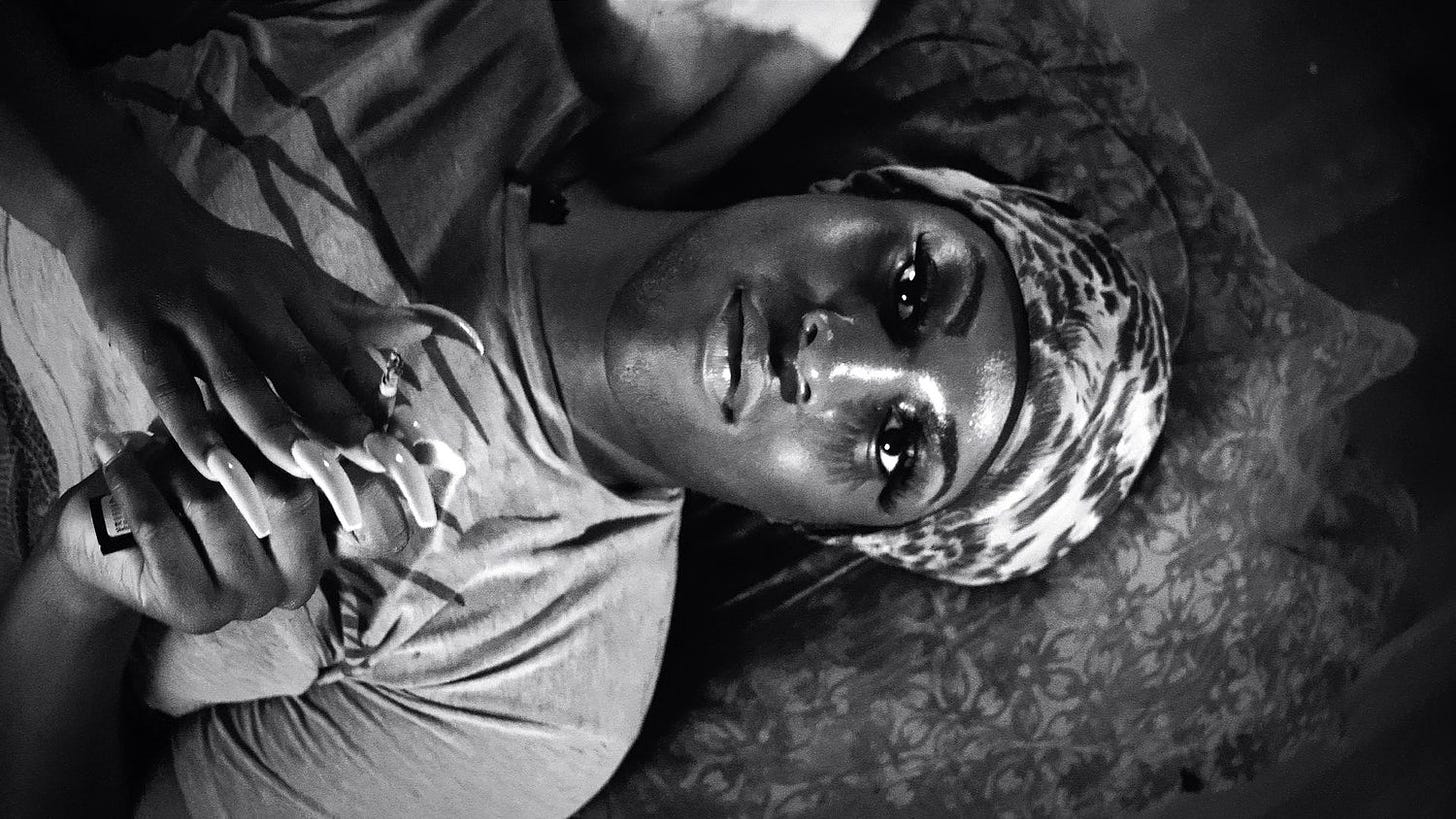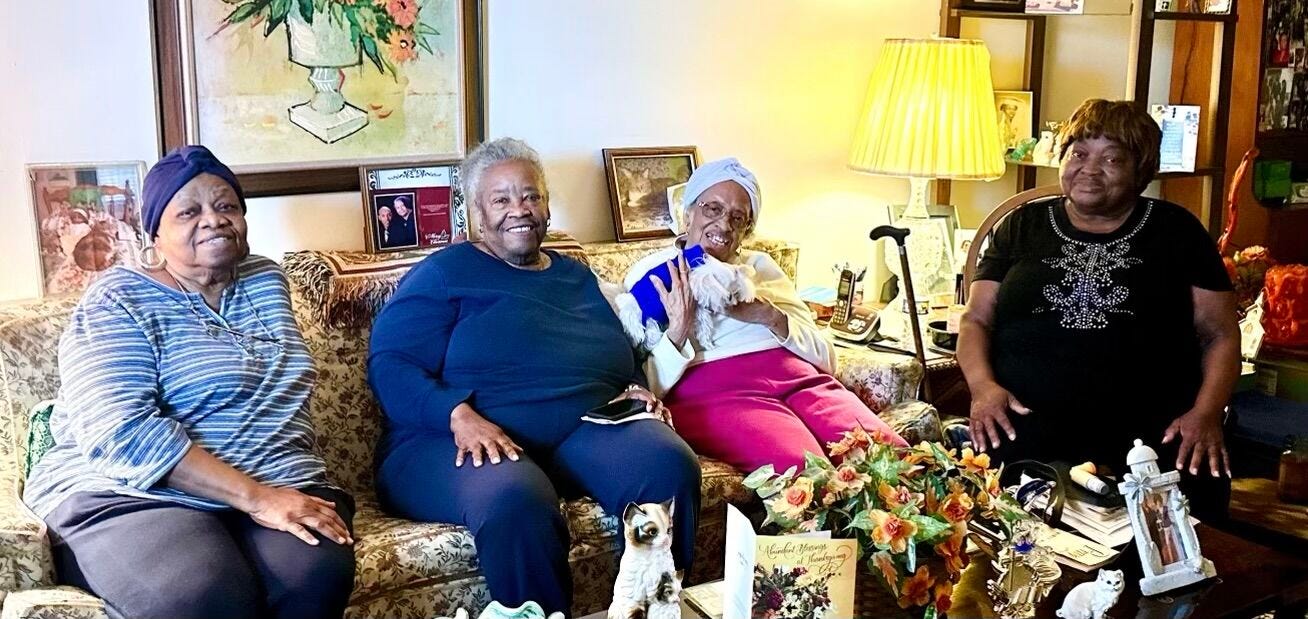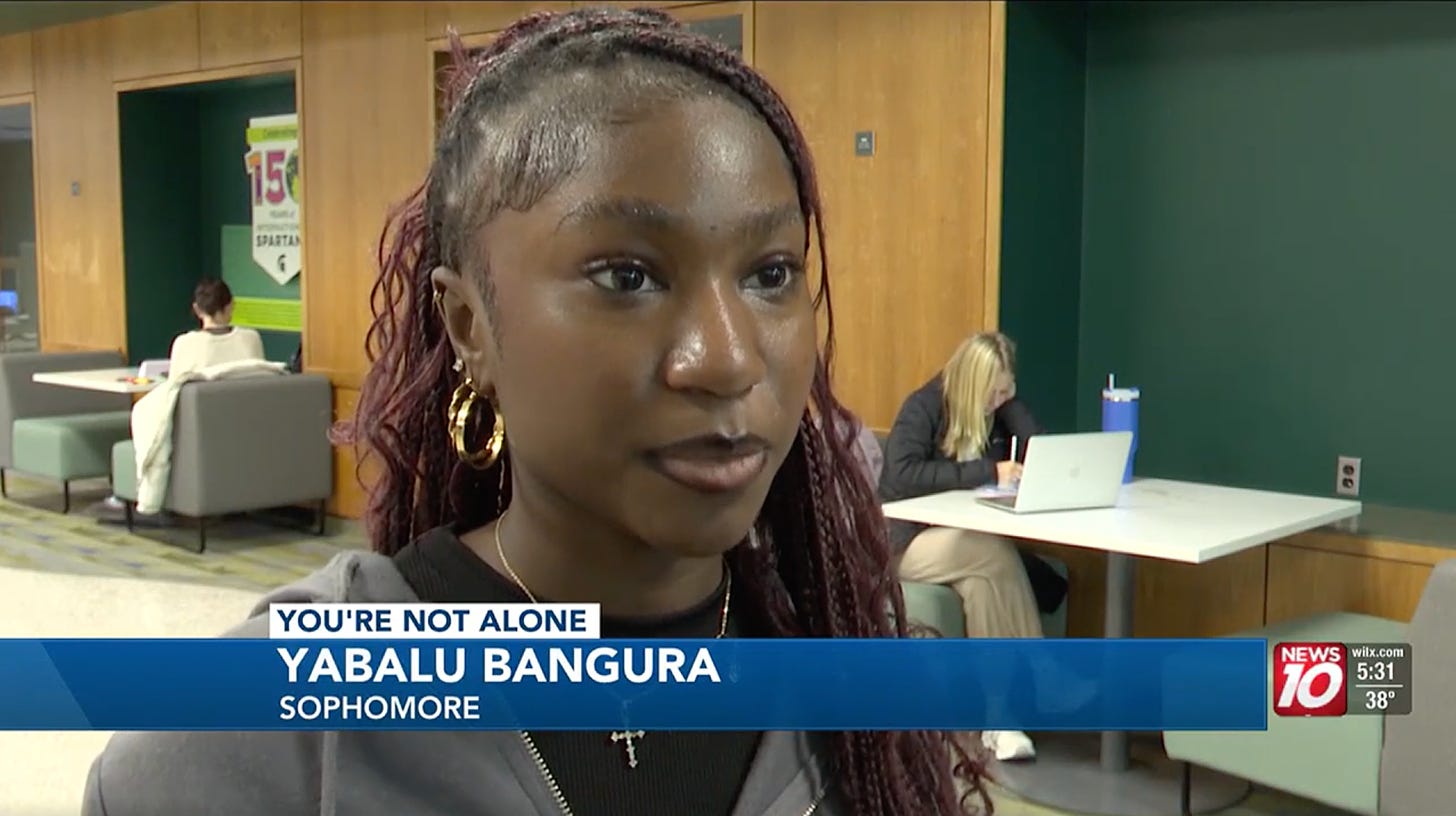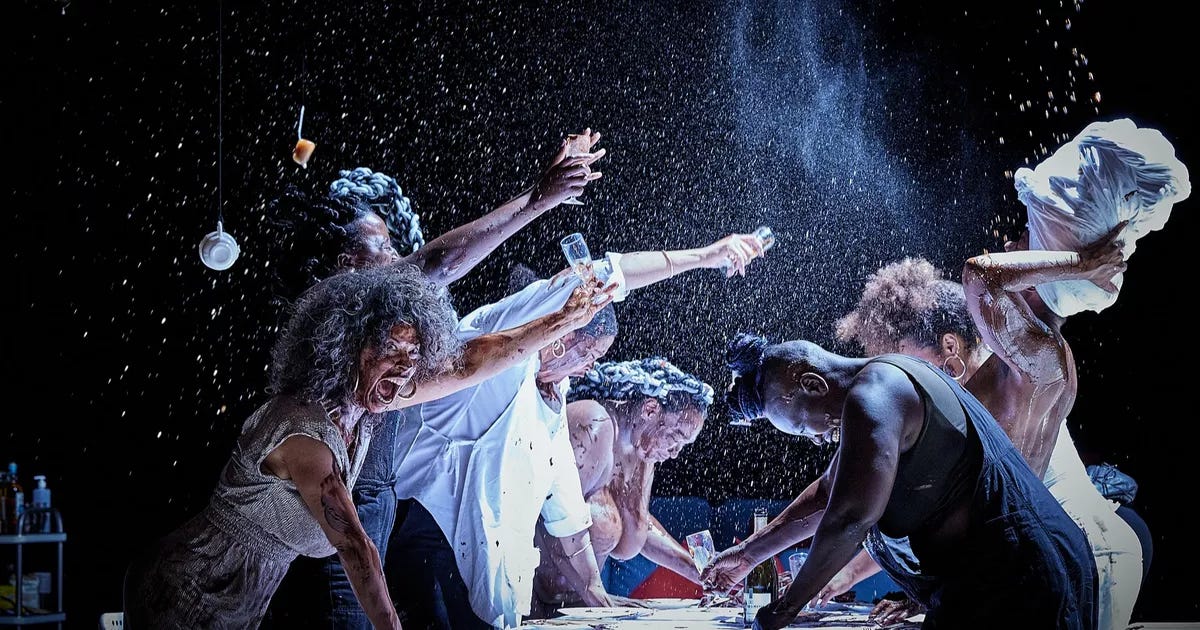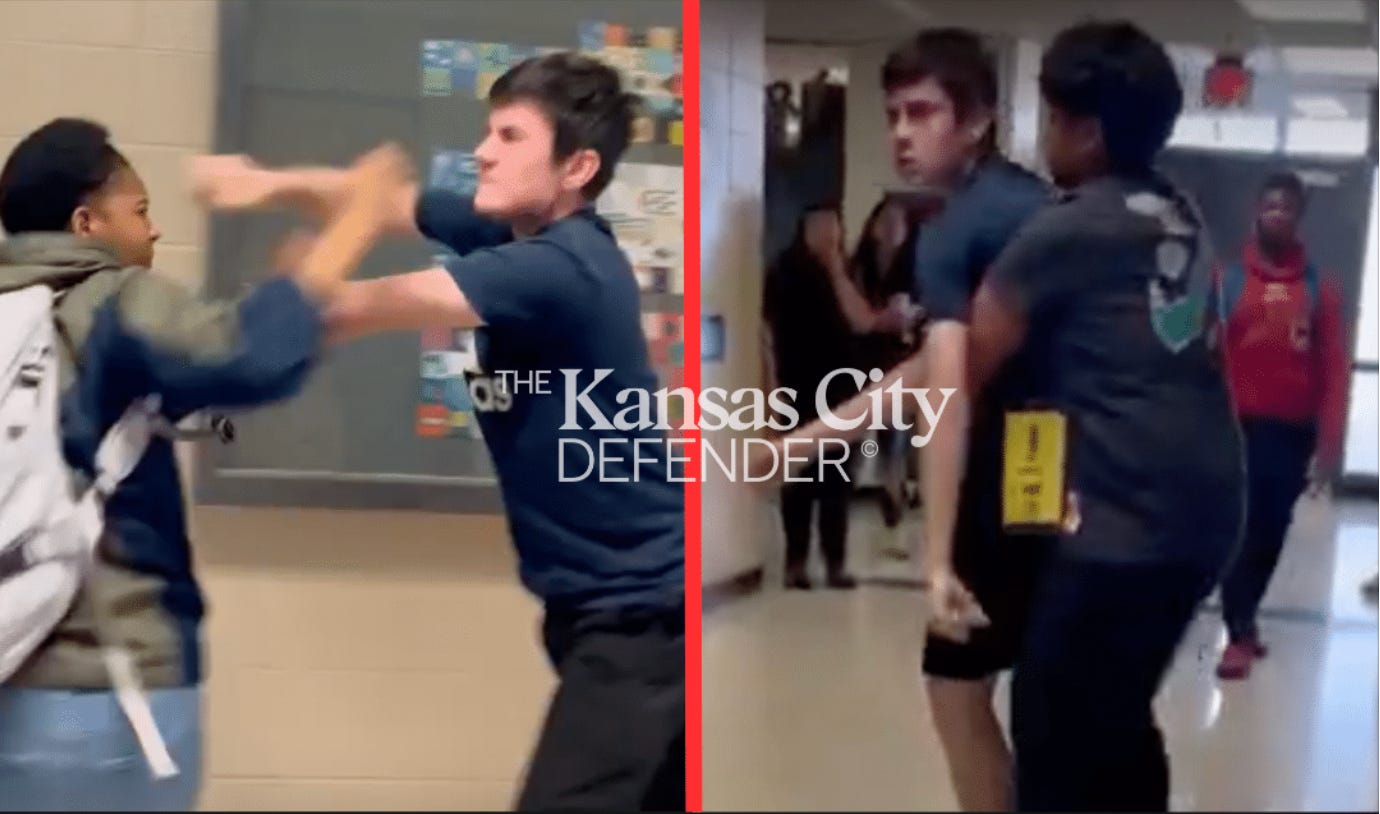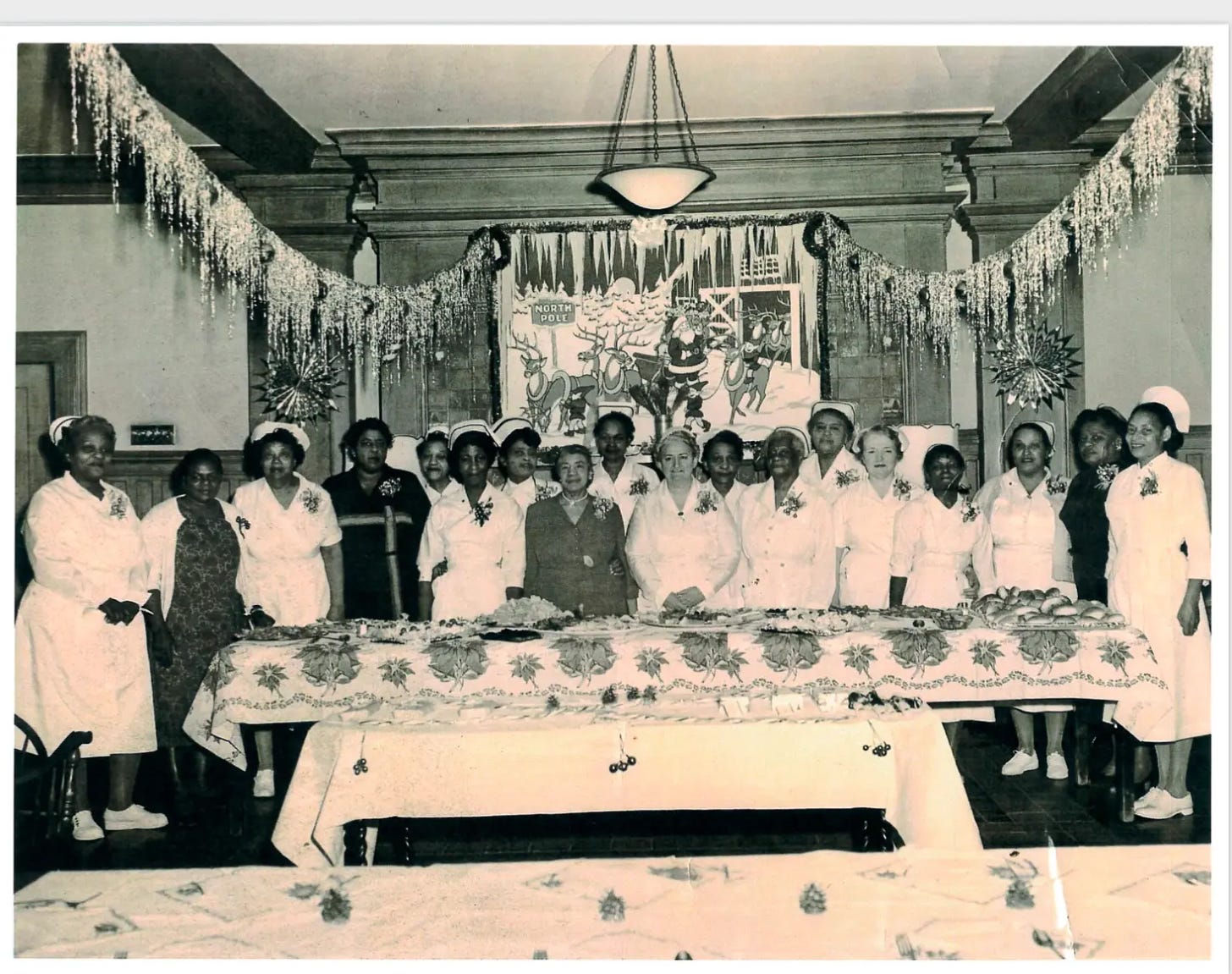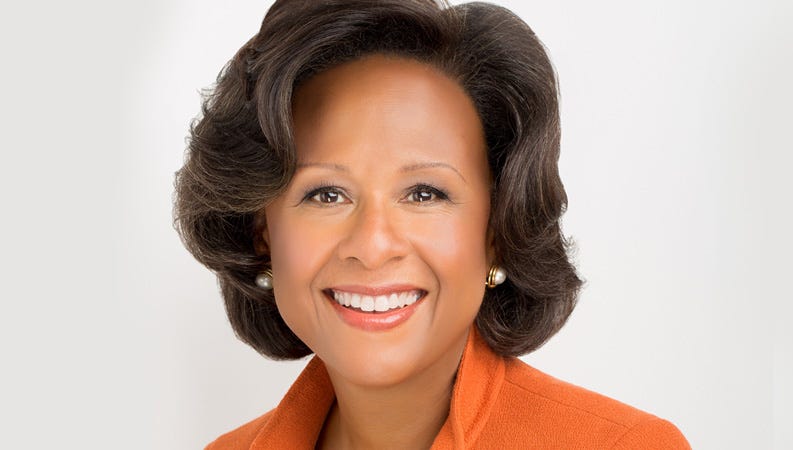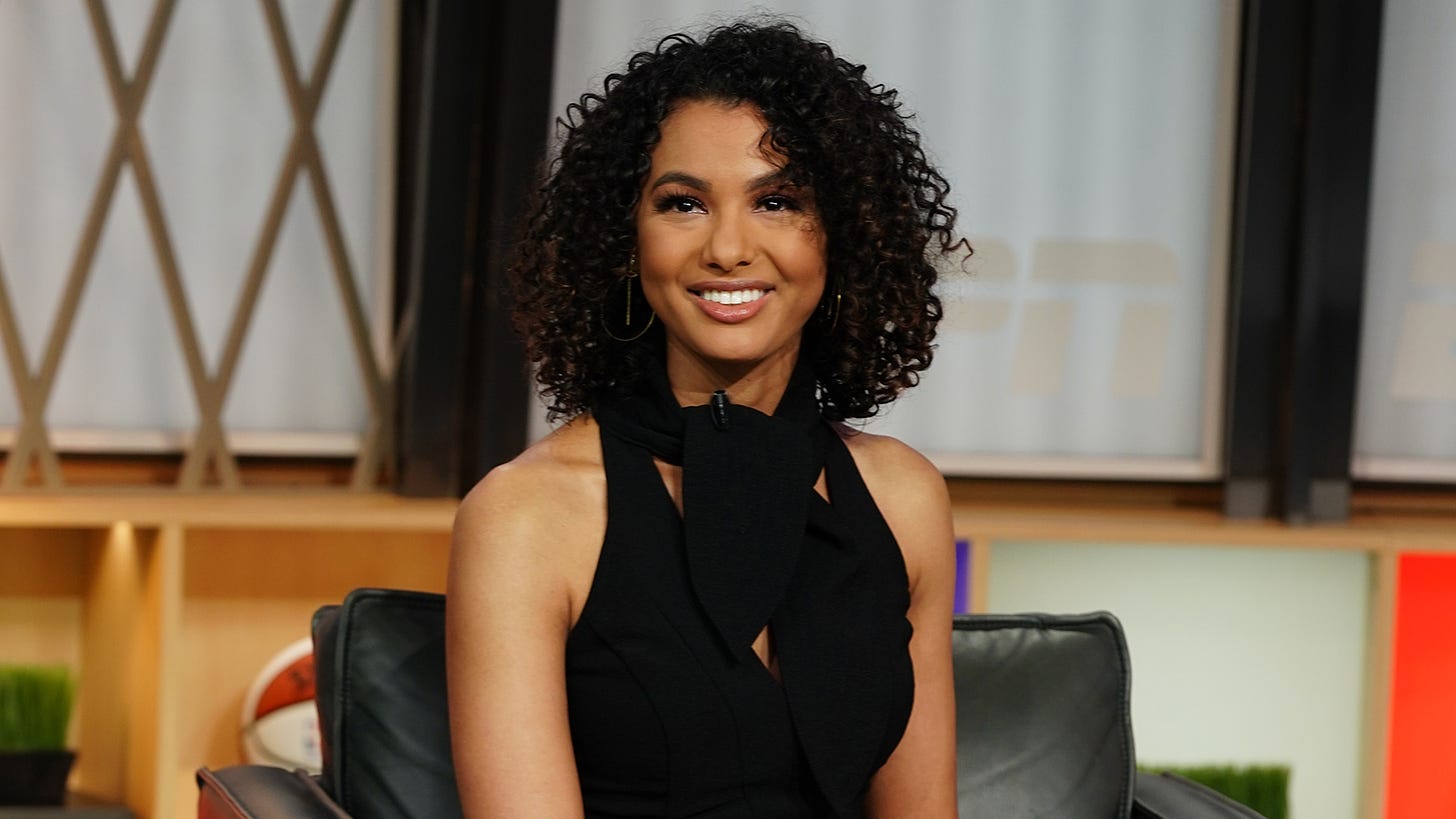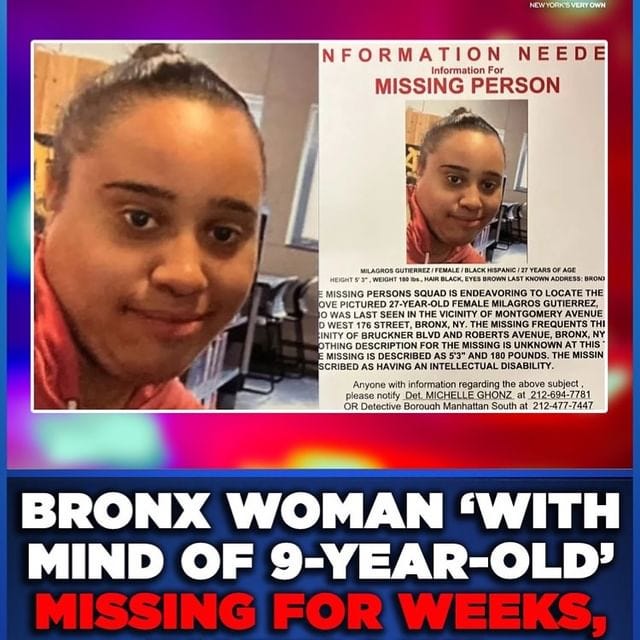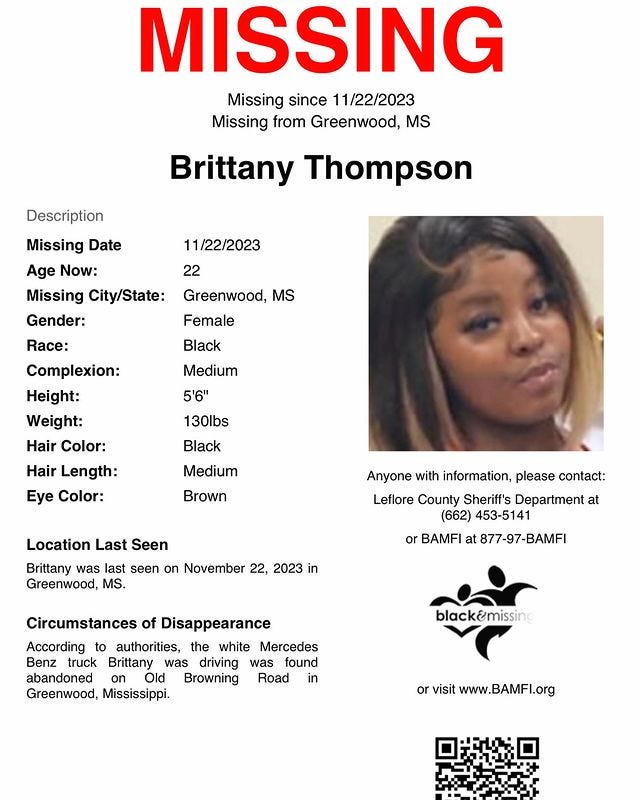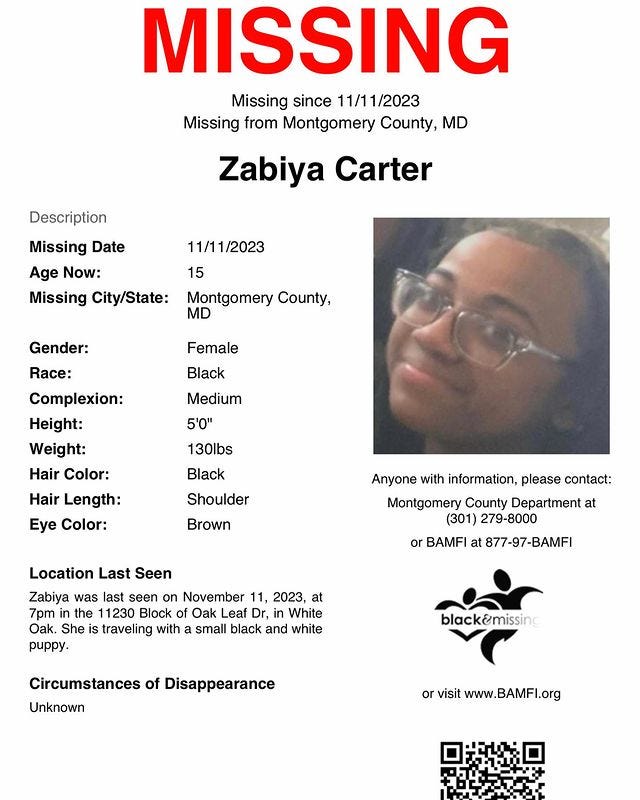Adopting Black foster children, Sheryl Lee Ralph’s new HIV film, defending ESPN’s Malika Andrews
Plus, the bordello madam who built a mega business empire, Michigan college students launch mental health app, Kansas teens defend attacked classmate, a French theater ensemble under fire, and more.
THIS WEEK IN BLACK WOMEN NEWS
11 stories across global and national news, entertainment, health, theatre, sports, art, and more.
Black Children Are Overrepresented In The Foster Care System. Why Aren't We Adopting Them?
Essence, Brennan Nevada Johnson
[Editor’s note: Through this piece, I learned about Noire Adoption, an adoption profile hosting platform centered on Black, biracial and interracial hopeful adoptive parents.]
Even when I speak to other people who were adopted, they almost always are surprised to hear that I was rescued by a successful, educated and beautiful Black woman and not a white family. I had the unique privilege of having a Black mother not only love and embrace me, but also help me identify and interact with the world as a Black person. Had I not, I probably would have ended up in a similar situation as most Black children who don’t get adopted—I would have been trapped in the foster care system.
The Formerly Enslaved Black Bordello Queen Who Built a Notorious Business Empire
Narratively, Lyndsey Ellis
“The end of Henry’s life stood in stark contrast to how it began. The woman who successfully set up a business empire, collecting wealth and property by captivating men from across social classes, began life enslaved, with not even freedom to her name. She ended it not only as an infamous bordello madam who outsmarted a long line of competitors and connivers who sought to bring her down. She also did an extremely rare thing in American history: She used the fortune she’d amassed to buy the very Alabama-based plantation where she was born, enslaved and raised. But danger seemed to follow Henry everywhere she went, and she would ultimately pay a high price for her remarkable success.”
Kokomo City Reminds Us That Trans People Everywhere Must Be Protected
Refinery29, Ineye Komonibo
“Beyond the screen, Black trans women are among the most vulnerable populations in what many are calling an ‘epidemic of violence against the transgender community.’ But how do we create space and safety for trans people in light of these dire circumstances? Paying close attention to a film like Kokomo City might be the first step. In the project, D. Smith, who is also transgender, provides four Black women (Daniella Carter, Koko Da Doll, Liyah Mitchell, and Dominique Silver) with a platform to tell their own stories in their own words.”
4 Black Women Purchased A D.C. Apartment Building For $75K in 1986, Now It May Be Worth More Than $1M
AfroTech, Shanique Yates
“Each of the remaining women occupies a unit in the building, and they have been fortunate to stand the test of time despite seeing people pushed out of the area by housing costs. They’ve supported each other through deaths and illnesses in their own respective families, and more. The group has witnessed the birth of their own children and then later on, their grandchildren, but one thing has always remained the same — their love for one another. ‘We have been a family,’ Washington noted. ‘There’s nothing we haven’t done together.’”
RELATED:
“These women bought a D.C. building 40 years ago and became a family,” The Washington Post, Theresa Vargas (Paywall)
Sistas that Care: prioritizing Black women’s mental health
WILX News 10
“Lynn said having a safe space with other black women or just women of color in general was needed on campus. According to Michigan State University’s Office of the Registrar in the fall of 2023, 64.4% of the student population was white and only 6.4% were black. Yabalu Bangura, a sophomore at the college said she has classes where she is the only black student. Bangura thinks new groups like Sista that Care is a great addition to the university.”
Why Sheryl Lee Ralph’s HIV Film ‘Unexpected’ Focuses on Black Women: No Longer a ‘Gay White Man’s Disease’
People, Jason Sheeler
“The film tells the story of Covin and another activist and hero, Masonia Traylor, as they create an underground network of women helping women cope with and survive HIV diagnoses in the rural South. Unexpected explores the critical issue of women facing HIV and looks into why Black women are disproportionally affected by the disease. According to the CDC, the HIV infection rate among Black women was the highest compared to women of all other races and ethnicities: 11 times that of White women and four times that of Latina women.”
A Play About Black Women’s Experiences, Met With Violence
The New York Times, Laura Cappelle
“According to Mediapart, one male audience member forcefully twisted Siby’s arm as she performed the scene. Others physically hit performers, called them ‘dictators’ and implied they didn’t belong in France. In the days that followed, Siby told Mediapart, an audience member accosted her and her child on the street in Avignon. Since the incidents became public — in a statement, the Avignon Festival described them as ‘an outpouring of hate’ — Chaillon and her team have also been cyber-harassed and become the subject of far-right pundits.”
RELATED:
“I’m an outspoken Black woman in France – so a powerful man tried to silence me with the law," The Guardian, Rokhaya Diallo
Simone Leigh's work explores how Black women have been misrepresented in art and culture
PBS News Hour
[Editor’s note: “Simone Leigh,” a massive exhibition chronicling the artist’s work and storied career, is currently showing at the Hirshhorn Museum and Sculpture Garden in Washington, D.C. through March 3, 2024. The next stop is Los Angeles.]
“Last year, artist Simone Leigh represented the U.S. at what is widely considered the world’s most important exhibition of contemporary art, the Venice Biennale. She was the first Black woman to have that honor. Now, there’s a chance to see her work in a retrospective touring the country.”
School Hate Crime: Racist Kid Yells “N Word” While Attacking Black Girl, Breaks Her Nose And Hospitalizes Her. Black Girl Gets Suspended
The Kansas City Defender, Ryan S.
“The incident at Shawnee Mission East is not an isolated one. Students report a history of racism at the school, often overlooked, swept under the rug and downplayed by the administration. They recount experiences of being racially profiled and dismissed by school officials, with one student recalling Principal Peres’ racist remarks about Black students appearing intimidating or ‘looking like you are going to jump somebody’ when they are in groups.
In response to what they see as administrative apathy, students have taken matters into their own hands. A walkout was organized to protest the school’s handling of racial issues. The students’ demands are clear: stricter policies against racism, the expulsion of the attacker, justice for Bre, and potentially firing of numerous administrators.”
RELATED:
"Kansas teen charged after he punched and yelled slur at Black high schooler in halls," NBC News, Marlene Lenthang and Dennis Romero
No one would care for NY’s tuberculosis patients — except these heroic women
New York Post, Todd Farley
“When it was time in the mid-1950s to do a massive, human trial on a new drug that might cure TB called isoniazid, researcher Herbert Fox of the Hoffman-LaRoche company needed many patients of diverse backgrounds with different variations of the disease. He found all that at Sea View and thus chose it to host his trial, in large part also because of the extensive experience of Edna Sutton and her black co-workers. ‘No one was more qualified than these nurses to assist . . . with a trial of this magnitude,’ Smilios writes. Isoniazid proved to be a highly effective tool to fight the disease.”
Lula Defies Calls to Put First Black Woman on Brazil’s Top Court
Bloomberg, Maria Eloisa Capurro and Simone Iglesias
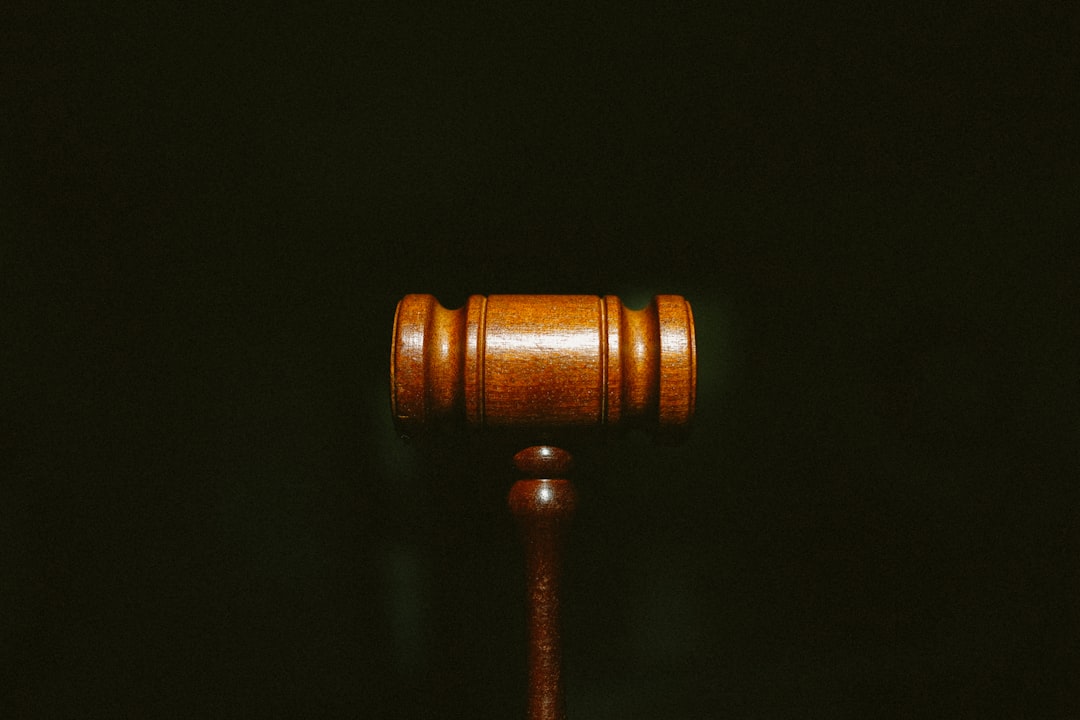
“‘Although 56% of the Brazilian population is Black, we do not have a single item, a single marker, a single socioeconomic and cultural indicator, that places the Black population in a minimally-balanced position,’ Vera Lucia Araujo, a Black female attorney who has been shortlisted for Supreme Court vacancies, said in an interview before the selection was made. ‘A population of 56% is on the margins of the system of power.’ Many also saw the seat as a reward for the 2022 presidential race, in which Lula racked up sizable margins among women and in the majority-Black northeast region on his way to victory in Brazil’s closest-ever election.”
For Her Next Round, Toni Tipton-Martin Orders Up a Book of Cocktails
The New York Times, Christina Morales

“While many in the world of cocktails are familiar with Tom Bullock, renowned for his juleps and long considered the first African American bartender to publish a cocktail manual, fewer know the work of Atholene Peyton, a home economics teacher whose 1906 ‘Peytonia Cook Book’ predated Bullock’s by a decade. Peyton’s story is just one told in Toni Tipton-Martin’s new book, ‘Juke Joints, Jazz Clubs and Juice: Cocktails From Two Centuries of African American Cookbooks,’ a chronicle of the ways in which Black people contributed to American cocktail culture.”
Dr. Paula Johnson Is Breaking Down the Barriers to Better Health
WIRED, Erica Kasper
“When she considers how far she’s come, Dr. Paula Johnson sees the path that brought her from being a public school kid in Brooklyn to being the first Black woman president of Wellesley College and a tireless advocate for equity in medicine. It’s a path that refined her life’s work into a simple question: ‘How do we improve the health and well being of all women, particularly those who suffer the most inequity?’ It started with her grandmother, even though she didn’t realize it at the time.”
Dez Bryant came for ESPN’s Malika Andrews over Josh Giddey coverage. He missed the mark.
USA TODAY, Mike Freeman
“For months now, if not longer, Andrews has caught the ire of NBA fans for the errant perception that she is more critical of Black coaches and players than white ones. It has to be made clear: there is no proof she does this. It’s a lie. Much of the criticism of Andrews, to me, is about the fact she’s a woman. There are men who don’t like it when women are as aggressive in their coverage and opinions as men.”
Have you seen these missing Black girls & women?
Please visit Black and Missing Foundation on Instagram to view these and other missing persons posters.


